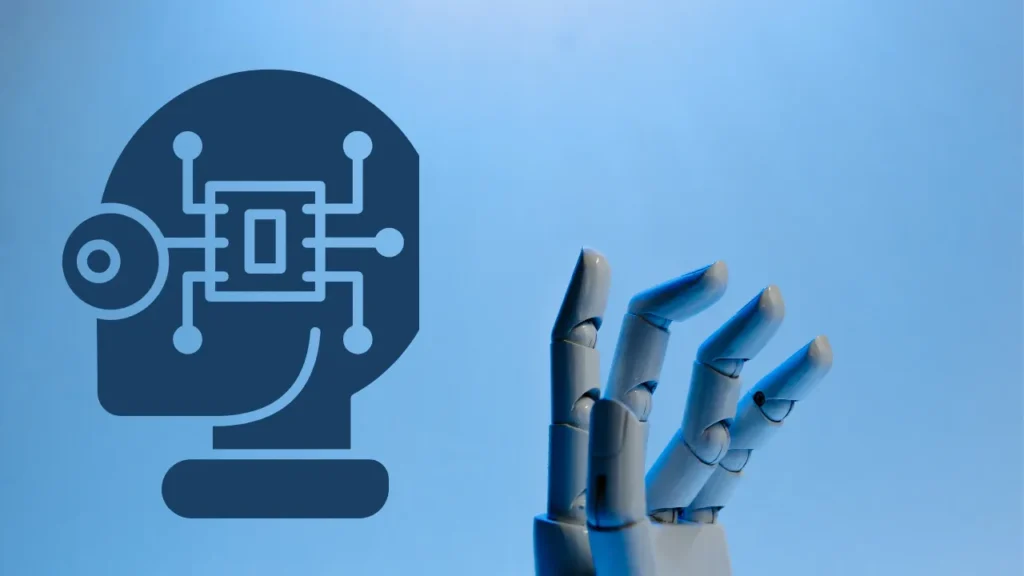Key Takeaways
Advantages of Generative AI in software development:- Enhanced Productivity: Generative AI tools automate repetitive tasks and suggest code in real-time, freeing developers to focus on complex problems.
- Faster Time to Market: Rapid prototyping and improved iteration cycles reduce the time needed to deliver software products.
- Cost Efficiency: AI-driven automation minimizes redundant coding efforts and reduces project costs, enabling smaller teams to achieve further.
- Increased Creativity: By generating fresh code ideas, generative AI fosters innovation and expands design possibilities for developers.
Artificial intelligence that is generative produces fresh and unique output. Text, code, images, videos, and even music might be utilized with it. Tools such as OpenAI’s ChatGPT and GitHub’s Copilot, which are driven by generative AI, have the potential to transform software development and free up your time to be inventive and productive.
When applied properly, generative AI can improve development cycles, simplify processes, and unleash creative potential. The advantages of generative AI in software development would be discussed in this article.
To avoid AI detection, use Undetectable AI. It can do it in a single click.
Table of Contents
Generative AI

The creation of everything from emails and movies to entirely new apps is being revolutionized by generative artificial intelligence (GenAI). The technology behind it is based on Generative Adversarial Networks (GANs), which teach two neural networks to compete with one another in order to produce unique content from an existing dataset.
It generates new content from a model trained on large datasets by using artificial intelligence (AI) algorithms, natural language processing, and comprehension to create content that is stylistically or structurally similar to the original data. This covers text, images, and basic apps.
Advantages of Generative AI in Software Development

With Alan Turing’s groundbreaking 1950 paper Computing Machinery and Intelligence, which introduced the idea of machine intelligence and its capacity for creative production and problem-solving, generative AI had its origins in the 1940s.
In the 1980s, new neural network capabilities produced models that trained by calculating the discrepancies between outputs and predictions. AI progress has accelerated in recent years due to a mix of larger labeled data sets, faster processors, and automatic encoding of unlabeled data.
Neural networks with expertise in natural language processing, known as transformer models, are able to evaluate the natural language context that programmers supply and make pertinent code suggestions. These generative AI tools have unique advantages that can revolutionize software development and deployment.
We should examine a few of the noteworthy instances.
Enhanced Productivity and Efficiency
By automating repetitive coding activities and offering real-time code ideas, generative AI technologies optimize development operations. Your time is freed up by this automation, so you can concentrate on complex design and development activities that need problem-solving.
Quicker Time to Market
The time needed to design and deliver software products can be decreased with the use of generative AI tools. Their code can be quickly prototyped, iterated, and improved. Because of this agility, concepts can be tested and validated quickly, leading to shorter development cycles and faster iterations.
Increased Inventiveness
By offering fresh code ideas and other alternatives, generative AI technologies encourage creativity and enable you to think about new design options. In addition, generative AI speeds up some development processes so you may concentrate on your creativity.
Prototyping and testing new concepts are accelerated by tools such as Copilot, which may create complete functions or classes from a few lines of input. With increased automation and intelligence, generative AI can cater for larger software projects and faster experimentation as models continue to advance.
Cost Savings
Considerable cost savings may occur from integrating generative AI tools. You can make better use of existing codebases with the aid of these technologies. By offering pertinent code samples and utilizing tried-and-true techniques, you can build on earlier work and minimize redundant coding efforts.
This eliminates the need to spend money rewriting already-existing functionality.
Particularly in large software projects, using generative AI can help you complete projects quickly with smaller teams while simultaneously saving money.
Costs associated with software development, such as code development, computing infrastructure, and project management overhead, can be decreased. You can accomplish further with less and maximize your development budget because generative AI automates repetitive processes and makes clever code suggestions.
Using Generative AI in Many Sectors

By automating code generation, improving design processes, and offering intelligent alternatives that increase software application efficiency, creativity, and customization, GenAI is transforming software development across a range of sectors.
Here are some instances of its application in the fields of media and entertainment, manufacturing, healthcare, and financial services.
Using Generative AI in Financial Services
Generative AI has numerous applications in the financial services industry. Software that generates financial reports and analysis regularly is one example. The AI can produce thorough reports that include risk assessments, trend forecasts, and performance analyses when it receives raw financial data.
Read Also >>> Synthetic Data Generation Using Generative AI in 2025
The time and effort needed for manual financial analysis may be decreased, for instance, if a GenAI system were to evaluate a company’s financial data over time and generate an extensive report that highlights key financial health indicators, predictive revenue models, and investment risks.
An application that provides customers individualized financial advice is another way that GenAI is being used in this sector.
Generative AI, for instance, could be used by a financial services app to provide users with personalized investment allocation advice or suggest particular financial products that fit their unique profiles, improving user experience and facilitating better financial decision-making.
Using Generative AI in Manufacturing
Custom applications that address particular production processes, equipment, or product lines are frequently required in the manufacturing industry. By autonomously producing code or software modules according to the particular needs of a manufacturing process, GenAI can help developers.
For instance, generative AI can assist in creating the basic code for a production line monitoring system that a company needs, which engineers can subsequently modify and enhance.
In addition, GenAI may be utilized to create complex algorithms for manufacturing software, which can enable the program to apply enhancements to production procedures.
Manufacturers can continuously improve productivity, cut waste, and adjust to shifting resource availability or market demands by incorporating these algorithms into software. One of the largest automobile manufacturers in the world serves as a practical illustration.
To be confident that resources are used efficiently and that the manufacturing flow is as efficient as possible, it has implemented optimization algorithms to optimize its production lines.
Using Generative AI in Healthcare
The healthcare industry is being significantly impacted by generative artificial intelligence. Software that analyzes enormous volumes of medical images is using it to find trends and abnormalities that human viewers might ignore. Better patient outcomes and precise diagnosis have emerged from this.
To help with drug discovery, it has also been included into software programs. By predicting molecular structures and analyzing enormous datasets, researchers may now find possible medication candidates quickly than ever before. The creation of life-saving drugs could be accelerated by this innovative technology.
In addition, it is being incorporated into personalized medicinal applications. AI-enabled software can assist in creating individualized treatment regimens that consider certain genetic variations and risk factors by evaluating a person’s genetic information and medical history.
This improves patient care and helps healthcare institutions allocate resources effectively.
Using Generative AI in Media and Entertainment
GenAI can be applied to the media and entertainment sector to create software that improves content production and customizes user experiences. For instance, generative AI could be used by a streaming service to build software that makes customized movie trailers for its subscribers.
In order to create a trailer that contains movie and television snippets that the viewer is probable to adore, the AI would examine the user’s viewing tastes and history.
Because viewers receive highly individualized suggestions for content in an inventive manner, this customized technique has the potential to boost user satisfaction and engagement while improving the platform’s browsing and viewing experience.
Generative AI has been applied to the video game industry to produce diverse and captivating game worlds, character conversations, and plots. For example, artificial intelligence (AI) may create intricate, dynamic levels or environments in games, offering gamers new and interesting experiences.
In addition, it may be used to provide realistic dialogue for non-player characters (NPCs), which enhances the game world’s realism and engagement.
Conclusion: Advantages of Generative AI in Software Development
Copilot and ChatGPT are two examples of artificial intelligence products that provide significant time-to-market advantages and efficiency gains. But it’s necessary to proceed cautiously when integrating AI.
Every AI-generated code should be thoroughly examined and tested for vulnerabilities, intellectual property problems, and other difficulties in addition to functionality. You can employ AI without putting your company at risk or exposing it to uncertainty by integrating robust tests into your CI/CD process.
FAQs: Advantages of Generative AI in Software Development
What is the role of generative AI in software development?
Generative AI plays a transformative role in the software development process by automating and enhancing various stages of the software development lifecycle. It is utilized to streamline coding, optimize development workflows, and improve productivity.
By using generative AI models, developers can generate code snippets, documentation, and even test cases, significantly reducing manual effort and allowing for faster project completion.
How does generative AI enhance developer productivity?
Generative AI enhances developer productivity by automating repetitive tasks, such as writing boilerplate code and generating unit tests. This allows developers to focus on complex and creative aspects of software projects.
Tools that integrate generative AI can analyze existing code and suggest improvements, thereby accelerating the development process and providing higher code quality. With this technology, developers can complete tasks in a fraction of the time, leading to faster deliverables and an efficient development workflow.
What are some practical use cases for generative AI in software development?
Some practical use cases for generative AI in software development include automated code generation, generating documentation from code comments, and creating test cases based on user stories. In addition, generative AI can be used to refactor existing code to improve maintainability and performance.
Other examples include intelligent chatbots that assist developers by providing coding suggestions, thereby improving the user experience during the development process.
What are the main advantages of generative AI in software development?
The main benefits of generative AI for software development include increased efficiency, improved code quality, and reduced time to market. By using generative AI technology, developers can automate mundane tasks, leading to fewer errors and better-structured code.
Furthermore, generative AI helps in rapid prototyping, enabling teams to validate ideas quickly and iterate based on feedback.


